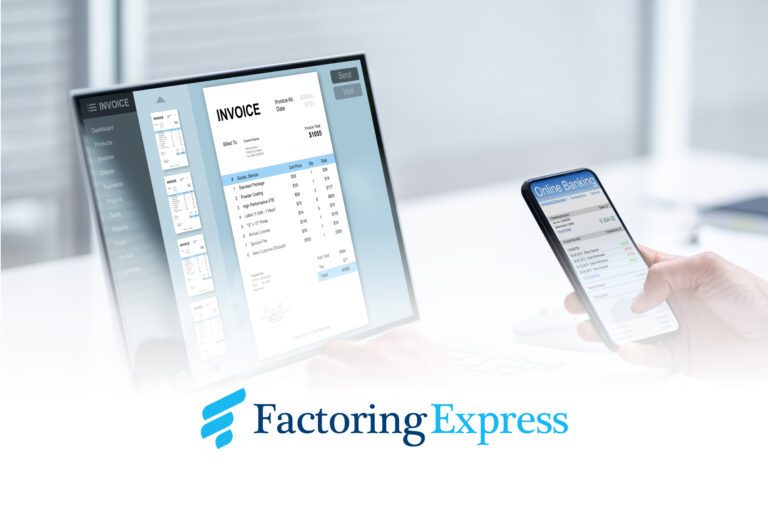Operating a business involves navigating challenges, and a significant concern for many business owners is effectively managing cash flow. It’s a critical aspect that can significantly impact a company’s success.
Now, envision a valuable resource – a financial solution that ensures prompt access to cash precisely when it’s needed most. Welcome to the realm of factoring agreements.
Whether you’re an experienced entrepreneur or just beginning your journey in the business world, grasping the fundamentals of factoring is essential. So, let’s dissect the details and empower you to make well-informed decisions that contribute to the advancement of your business.
What is a Factoring Agreement?

In the realm of business challenges, effective management of cash flow stands out as a significant hurdle. To address this, a factoring agreement comes into play—a dynamic financial solution empowering businesses dealing with the challenge of waiting for customer payments. Let’s dissect the specifics of a factoring agreement:
1. Invoice Exchange
The factoring agreement definition is very straightforward. At its core, a reverse factoring agreement involves a company trading its accounts receivable, specifically those lingering unpaid invoices, to a specialized financing entity known as a factor.
2. Immediate Cash Infusion
The pivotal moment arrives when the factor promptly intervenes, providing an immediate financial boost through an accounts receivable factoring agreement. They advance a substantial portion of the invoice amount upfront, ensuring you have the capital needed to fuel your business operations without enduring the agonizing wait.
If, for example, you want to start a trucking business, factoring for trucking may be ideal for you.
3. Transfer of Collection Burden
Ever found yourself tirelessly chasing payments? With a factoring and security agreement, that headache dissipates. The factor assumes the responsibility of collecting the full payment from your customer, liberating you from the relentless pursuit of overdue invoices.
4. Cash Flow Smoothing
Visualize factoring as a financial safety net through future receivables factoring agreements. It levels out the peaks and valleys in your cash flow, ensuring a consistent stream of funds to keep your business machinery well-oiled, even when customers take their time settling accounts.
5. Specialized Financing Partner
The factor isn’t merely a middleman; they serve as a specialized financing partner in a factoring loan agreement. Their expertise in managing receivables adds value to the equation, allowing you to concentrate on steering your business toward growth.
6. Risk Mitigation
Factoring extends beyond cash—it acts as a shield against the uncertainty of late payments or non-payment. The factor assumes the risk associated with customer payments, providing you with a financial safety net.
7. Flexibility in Funding
Diverging from traditional loans, factoring offers flexibility in a factoring agreement. The amount you receive is directly tied to your sales, presenting an adaptive solution that scales with the growth of your business.
8. Quick Access to Capital
Factoring is renowned for its speed. The approval process typically outpaces traditional loans, ensuring you can promptly address urgent financial needs without unnecessary delays.
In essence, a factoring agreement becomes your ally in the financial arena, offering immediate liquidity, risk mitigation, and a pathway to more seamless cash flow management.
How Factoring Works
Now that we’ve uncovered the essence of a factoring agreement, let’s dive into the mechanics of how this financial maneuver operates. Here’s a straightforward look at how factoring works:
Step 1. Submit Your Invoices. The process kicks off by submitting your outstanding invoices to the factor. These are the invoices hanging in limbo, waiting for your customers to settle their debts.
Step 2. Verification Process. The factor conducts a swift but thorough examination of the submitted invoices. This isn’t an exhaustive dive into your company’s entire financial history. Instead, it’s a focused check to ensure the legitimacy of the invoices and the creditworthiness of your customers.
Step 3. Advance on Invoice Amount. Once the verification green light flashes, the factor doesn’t keep you waiting. They swiftly advance a significant portion of the invoice amount to your business, usually around 70-90%, providing immediate access to much-needed funds.
Step 4. Customer Payment. With cash in hand, the factor takes charge of collecting the full payment directly from your customers. They handle communication, reminders, and follow-ups, freeing up your time and energy from the collection process.
Step 5. Factor’s Fee Deduction. This financial lifeline comes at a cost. The factor deducts a fee, typically a small percentage of the total invoice amount, for their services. It’s a fair trade-off for the quick cash infusion and the burden they’ve shouldered in collecting payments.
Step 6. Final Payment to You. Once your customer settles their invoice, the factor subtracts their fee and transfers the remaining balance back to your business. It’s a seamless process, ensuring you receive the majority of the invoice value without the stress of chasing payments.
Step 7. Repeat as Needed. Factoring’s beauty lies in its adaptability. As new invoices stack up, you can repeat the process, tapping into factoring whenever cash flow hurdles arise.
Benefits of Factoring
Let’s shine a spotlight on the compelling benefits that make this financial strategy a game-changer for businesses:
- Quick Access to Cash. Factoring provides a swift solution to one of the most pressing challenges businesses face—waiting for customer payments. By converting invoices into immediate cash, factoring ensures you have the funds to seize opportunities and address urgent financial needs. Moreover, they can offer you additional services such as fuel cards.
- Mitigating Payment Risks. Unpredictable payment behaviors can keep business owners on edge. Factoring shifts the risk from your shoulders to the factor’s, as they take on the responsibility of collecting payments from your customers. This shields you from the uncertainties of late payments or non-payment.
- Focus on Business Growth. Time spent chasing payments is time taken away from growing your business. Factoring liberates you from the collection hassle, allowing you to redirect your energy towards strategic initiatives, expansion, and enhancing your products or services. You can even avail fuel advances from certain factoring companies.
- Improved Cash Flow Management. Factoring acts as a powerful tool for smoothing out the bumps in your cash flow journey. Instead of grappling with cash shortages due to delayed payments, you can maintain a consistent and predictable cash flow, fostering stability and financial agility.
- No Additional Debt. Unlike traditional loans, factoring isn’t a debt instrument. The funds received are essentially an advance on your own sales, making it a more flexible and sustainable financial solution.
- Flexibility in Funding. Factoring is dynamic and scalable. The amount you receive is directly tied to your sales, providing flexibility that aligns with your business’s growth trajectory. As your sales increase, so does your access to factoring funds.
- Creditworthiness Unaffected. Factoring is primarily based on the creditworthiness of your customers, not your business. This can be advantageous, especially if your company is relatively new or undergoing financial challenges.
Drawbacks and Considerations
While factoring presents a lifeline for businesses navigating cash flow challenges, it’s essential to steer with caution and be aware of potential drawbacks and considerations:
Factoring Fees
The convenience of factoring comes at a price. Factor fees, typically ranging from 1-5% of the invoice value, can add up. It’s crucial to weigh these costs against the immediate cash benefits and consider whether the expense aligns with your business’s financial health.
Impact on Customer Relationships
When a third party takes over the collection process, it could strain customer relationships. Some may view the involvement of a factor as a signal of financial instability, and others may not appreciate changes in payment procedures.
Commitment Periods
Factoring agreements often come with commitment periods, locking you into a contractual relationship with the factor. Assess the terms carefully, considering the flexibility needed for your business’s unique circumstances.
Potential for High-Credit Customers
If your customer base consists of entities with high creditworthiness, the cost of factoring may outweigh the benefits. In such cases, traditional financing options or internal credit controls might be more cost-effective.
Reputation Considerations
Depending on your industry, the use of factoring may carry certain perceptions. Some businesses view it as a smart financial move, while others may raise an eyebrow. Consider how factoring aligns with your industry norms and your company’s reputation.
Hidden Costs
Dig into the details of the factoring agreement. Ensure you’re aware of any hidden costs, administrative fees, or additional charges that might not be immediately apparent. Transparency is key to avoiding unwelcome surprises.
Limited Control over Collections
While factoring frees you from the hassle of chasing payments, it also means relinquishing some control over the collection process. If customer relationships are a cornerstone of your business, this loss of control may be a significant consideration.
Long-Term Impact
Evaluate the long-term impact of factoring on your business. While it provides immediate relief, consider how it aligns with your growth strategy and financial goals over an extended period.
In essence, factoring is a powerful financial tool, but like any tool, it must be used judiciously. Understanding these drawbacks and considerations allows you to navigate the factoring landscape with your eyes wide open, ensuring that the benefits truly outweigh the potential downsides of your unique business scenario.
Choosing the Right Factoring Agreement

Now that we’ve explored the ins and outs of factoring, it’s time to address a critical aspect—choosing the right factoring agreement for your business. It’s not a one-size-fits-all scenario, and making an informed decision requires a strategic approach. Here’s a roadmap to guide you through the process:
1. Understanding Terms and Conditions
Don’t let the fine print catch you off guard. Thoroughly grasp the terms and conditions of the factoring agreement. Pay attention to factors like the advance rate, factor fees, and any additional charges. Clear understanding ensures no surprises down the financial road.
2. Transparency in Contracts
Transparency is non-negotiable. Seek a factor that lays out all costs, fees, and contractual obligations upfront. A transparent partner fosters a healthy business relationship and avoids potential disputes in the future.
3. Customization Options
Your business is unique, and your factoring agreement should reflect that. Look for a factor that offers customization options to tailor the agreement to your specific needs. This flexibility ensures the arrangement aligns seamlessly with your operational requirements.
4. Customer Interaction Policies
Since the factor will be in direct contact with your customers for payment collection, understand their interaction policies. Choose a factor that maintains professionalism, respecting the relationships you’ve built with your clientele.
5. Exit Strategies
Consider the exit strategy. Circumstances change, and you may find yourself needing to end the factoring agreement. Ensure the contract outlines clear and fair exit strategies, avoiding complications and potential financial repercussions.
6. Industry Expertise
Opt for a factor with expertise in your industry. Industry-specific knowledge means they understand the nuances of your business, providing valuable insights and adapting to industry-specific challenges.
7. Online Tools and Technology
In today’s digital age, efficient processes matter. Look for factors that leverage online tools and technology for streamlined invoice submission, tracking, and reporting. A factor with a user-friendly interface adds efficiency to the entire factoring process.
8. Customer Reviews and References
Don’t underestimate the power of peer insights. Research customer reviews and seek references from businesses similar to yours. Hearing about others’ experiences can offer valuable perspectives and guide you in making an informed decision.
9. Scalability
Your business isn’t static, and neither should your factoring agreement be. Choose a factor that accommodates the scalability of your business. Whether you’re a startup or an established enterprise, the factor should grow with you.
10. Customer Support
Accessibility matters. A factor with responsive and accessible customer support ensures that your queries are addressed promptly, fostering a smooth and efficient working relationship.
In essence, choosing the right factoring agreement requires a strategic blend of due diligence and alignment with your business goals. By considering these factors, you set the stage for a mutually beneficial partnership that propels your business forward. Now, let’s explore common mistakes to avoid in the world of factoring.
Leverage Factoring for Growth with Factoring Express
Factoring isn’t just a financial strategy. It’s a dynamic tool that empowers your business with immediate liquidity, risk mitigation, and streamlined cash flow. As you navigate the landscape of entrepreneurship, consider the tailored advantages factoring can offer.
So, don’t merely stand on the sidelines—seize the momentum. Leverage factoring to fuel your growth, enhance your financial stability, and steer your business toward new horizons.
And when it comes to reliable factoring services, we wholeheartedly recommend exploring the offerings of Factoring Express. Your journey to financial empowerment starts now. Call us today!




